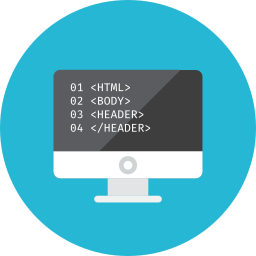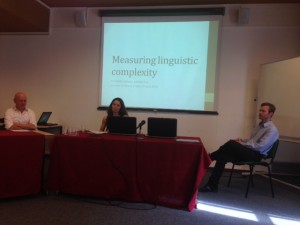
Text Mining and Applications (TEMA’15) Track of EPIA’15
TeMA 2015 will be held at the 17th Portuguese Conference on Artificial Intelligence (EPIA 2015) taking place at the University of Coimbra, Portugal, from 8th to 11th September 2015. This track is organized under the auspices of the Portuguese Association for Artificial Intelligence (APPIA).
EPIA 2015 URL: http://epia2015.dei.uc.pt
This announcement contains:
[1] Track Description; [2] Topics of Interest; [3] Special Interests; [4] Important Dates; [5] Paper Submission and Formatting Instructions; [6] Track Fees; [7] Organizing Committee; [8] Program Committee and [9] Contacts.
[1] Track Description
Human languages are complex by nature and efforts in pure symbolic approaches alone have been unable to provide fully satisfying results. Text Mining and Machine Learning techniques applied to texts (raw or annotated) brought up new insights and completely shifted the approaches to Human Language Technologies. Both approaches, symbolic and statistically based, when duly integrated, have shown capabilities to bridge the gap between language theories and effective use of languages, and can enable important applications in real-world heterogeneous environment such as the Web.
The most natural form of written information is raw, unstructured text. The huge amount of this kind of textual information circulating in the Internet nowadays (in an increasing number of different languages) leads us to use and investigate systems, algorithms and models for mining texts. As a consequence, Text Mining is an active research area that is continuously broadening worldwide and fostering reinforced interest in languages other than the most common ones such as English, French, German and now Chinese. This 6th Biannual Track of Text Mining and Applications will provide, as in previous editions of the TeMA Tracks within the EPIA Conferences, a venue for researchers to present and share their work in intelligent computational technologies applied to written human languages. TeMA 2015 is a forum for researchers working in Human Language Technologies i.e. Natural Language Processing (NLP), Computational Linguistics (CL), Natural Language Engineering (NLE), Text Mining (TM) and related areas.
Authors are invited to submit their papers on any of the issues identified in section [2].
[2] Topics of Interest
Topics include but are not limited to:
Text Mining:
– Language Models
– Multi-word Units
– Lexical Knowledge Acquisition
– Word and Multi-word Sense Disambiguation
– Acquisition and Usage of Language Resources
– Lexical Cohesion
– Sentiment Analysis
– Word and Multi-word Translation Extraction
– Textual Entailment
– Text Clustering and Classification
– Algorithms and Data Structures for Text Mining
– Multi-Faceted Text Analysis: Opinions, Time, Space
– Evaluation of all the previous
Applications:
– Social Network Analysis
– Machine Translation
– Automatic Summarization
– Information Extraction / Intelligent Information Retrieval
– Multilingual access to multilingual Information
– E-training, E-learning and Question-Answering Systems
– Web Mining
[3] Special Interests
The evolution of the Web has drastically changed the focus of Text Mining as most of the texts are small in size. While, in the past, the focus was on dealing with very large corpora of long texts, the new reality is huge collections of tweets or posts on social media that contain very few words in a clear multilingual environment. This is usually referred to the Big Data (here Big Textual Data). As a consequence, new trends have recently been appearing in Text Mining, for example, keyword extraction, named-entity recognition, novelty detection, event identification.
Moreover, the growing interest and quality of Wikipedia has allowed to include knowledge on a large scale in Text Mining applications. As such, a lot of research have been focusing on the correct use of knowledge bases, for example, entity information retrieval, word sense disambiguation, ephemeral clustering.
[4] Important Dates
March 9, 2015: Paper submission deadline
April 27, 2015: Notification of paper acceptance
June 1, 2015: Deadline for camera-ready versions
September 8-11, 2015: Conference dates
[5] Paper Submission and Formatting Instructions
Submissions must be original and not published elsewhere. Papers should not exceed twelve (12) pages in length and must adhere to the formatting instructions of the conference. Each submission will be peer reviewed by at least three members of the Program Committee. The reviewing process is double blind, so authors should remove names and affiliations from the submitted papers, and must take reasonable care to assure anonymity during the review process. References to own work may be included in the paper, as long as referred to in the third person. Acceptance will be based on the paper’s significance, technical quality, clarity, relevance and originality. Accepted papers must be presented at the conference by one of the authors and at least one author of each accepted paper must register for the conference.
All accepted papers will be published by Springer in a volume of Lecture Notes in Artificial Intelligence (LNAI).
Full-length papers cannot exceed twelve (12) pages. All papers should be prepared according to the formatting instructions of Springer LNAI series (http://www.springer.de/comp/lncs/authors.html/) and must be submitted in PDF (Adobe’s Portable Document Format) through EPIA 2015 Conference Management.
[6] Track Fees:
Track participants must register at the main EPIA 2015 conference. No extra fee shall be paid for attending this track.
[7] Organizing Committee:
Joaquim F. Ferreira da Silva. Universidade Nova de Lisboa, Portugal.
Vitor R. Rocio. Universidade Aberta, Portugal.
Gaël Dias. University of Caen Basse-Normandie, France.
José G. Pereira Lopes. Universidade Nova de Lisboa, Portugal.
Hugo Gonçalo Oliveira, Universidade de Comimbra, Portugal
[8] Program Committee:
Adam Jatowt (Universit of Kioto, Japan)
Adeline Nazarenko (University of Paris 13, France)
Aline Villavicencio (Universidade Federal do Rio Grande do Sul, Brazil)
Antoine Doucet (University of Caen, France)
António Branco (Universidade de Lisboa, Portugal)
Béatrice Daille (University of Nantes, France)
Belinda Maia (Universidade do Porto, Portugal)
Brigitte Grau (LIMSI, France)
Bruno Cremilleux (University of Caen, France)
Christel Vrain (Université d’Orléans, France)
Eric de La Clergerie (INRIA, France)
Gabriel Pereira Lopes (Universidade Nova de Lisboa, Portugal)
Gaël Dias (University of Caen Basse-Normandie)
Gregory Grefenstette (CEA, France)
Hugo Oliveira (Universidade de Coimbra)
Irene Rodrigues. Universidade de Évora, Portugal)
Isabelle Tellier (University of Orléans, France)
Joaquim Ferreira da Silva (Universidade Nova de Lisboa)
João Balsa (Universidade de Lisboa, Portugal)
João Magalhães (Universidade Nova de Lisboa)
Katerzyna Wegrzyn-Wolska (ESIGETEL, France)
Lucinda Carvalho ((Universidade Aberta, Portugal)
Manuel Vilares Ferro (University of Vigo, Spain)
Marc Spaniol (University of Caen Basse-Normandie)
Marcelo Finger (Universidade de São Paulo, Brazil)
Maria das Graças Volpe Nunes (Universidade de São Paulo, Brazil)
Mark Lee (University of Birmingham, United Kingdom)
Mohand Boughanem (University of Toulouse III, France)
Nuno Mamede (Universidade Técnica de Lisboa, Portugal)
Nuno Marques (Universidade Nova de Lisboa, Portugal)
Pablo Gamallo (Faculdade de Filologia, Santiago de Compustela, Spain)
Paulo Quaresma (Universidade de Évora, Portugal)
Pavel Brazdil (University of Porto, Portugal)
Pierre Zweigenbaum (CNRS-LIMSI, France)
Pushpak Bhattacharyya (Indian Intitute of Technology Bombay, India)
Spela Vintar (University of Ljubljana, Slovenia)
Tomaz Erjavec (Jozef Stefan Institute, Slovenia)
Vitor Jorge Rocio (Universidade Aberta, Portugal)
![]()


